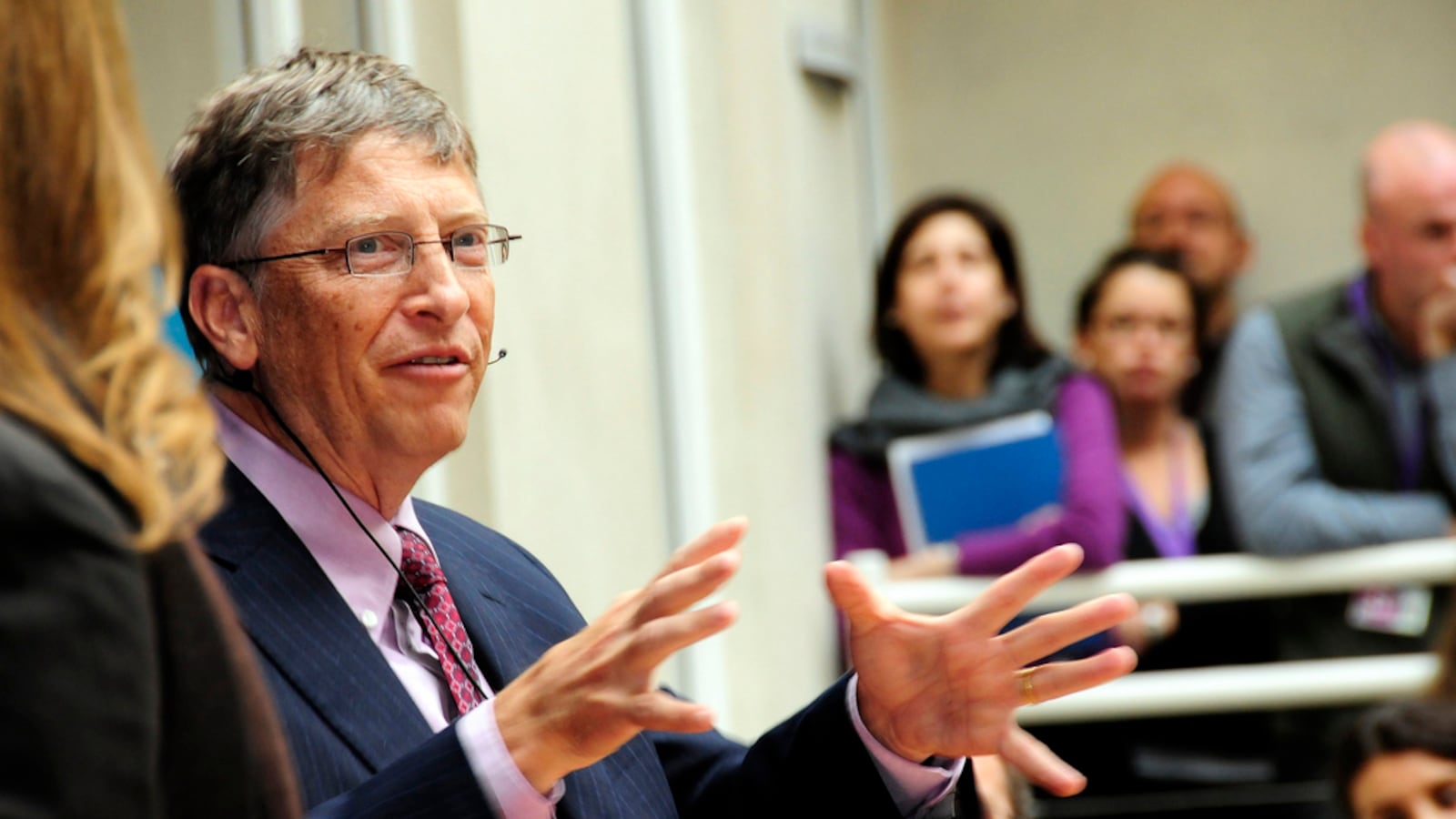Its massive education funding efforts have helped spread small high schools, charter schools, and efforts to overhaul teacher evaluations. Now, the Gates Foundation is going in a new direction.
In a speech Thursday, Bill Gates said the foundation is about to launch a new, locally driven effort to help existing public schools improve.
The idea is to fund “networks” that help public schools improve by scrutinizing student achievement data and getting schools to share their best ideas, he said. Of the $1.7 billion the Bill and Melinda Gates Foundation will spend on U.S. education over the next five years, more than 60 percent will go to these networks — dwarfing the amount to be spent on charter schools, about 15 percent.
Gates said that’s both because he wants to go where other philanthropy isn’t and because the foundation’s strategy is to affect as many students as possible. (Only 5 percent of U.S. public-school students attended a charter school in 2014.)
“In general, philanthropic dollars there … on charters is fairly high. We will be a bit different. Because of our scale, we feel that we need to put the vast majority of our money into these networks of public schools,” Gates said. (“We love charters,” he quickly added.)
The Gates Foundation is a supporter of Chalkbeat.
The strategy appears to be a nationwide expansion of the work Bob Hughes, the Gates Foundation’s K-12 education chief, did in New York City as the longtime head of an organization called New Visions for Public Schools. New Visions started several dozen district and charter schools but also created tools for schools to check on student progress that were later adopted by New York City itself.
Gates offered other examples: Chicago’s Network for College Success, which works with about 15 high schools; the LIFT Network in Tennessee, which includes 12 school districts; and the CORE Districts in California. The foundation plans to fund 20 to 30 such networks, Gates said.
Also notable is where Gates said the philanthropy will no longer be sending money: toward efforts to encourage new teacher evaluation systems, which in some states have faced fierce political resistance in recent years.
The foundation’s new work to support school networks will be driven by local ideas about how to create the best schools, Gates said.
“The challenge is that, even that piece when it’s done very well, the teacher in the classroom — that is not enough to get the full result we want,” Gates said. “And this is something that I’m sure has been obvious to all of you. But it’s really the entire school, where the leadership, the development, the overall culture, the analysis of what’s going on with the kids — it’s that school level where you have to get everything coming together.”
The final quarter of that $1.7 billion will go toward research into how kinds of technology could improve student learning and ways to improve math instruction and career preparation.


